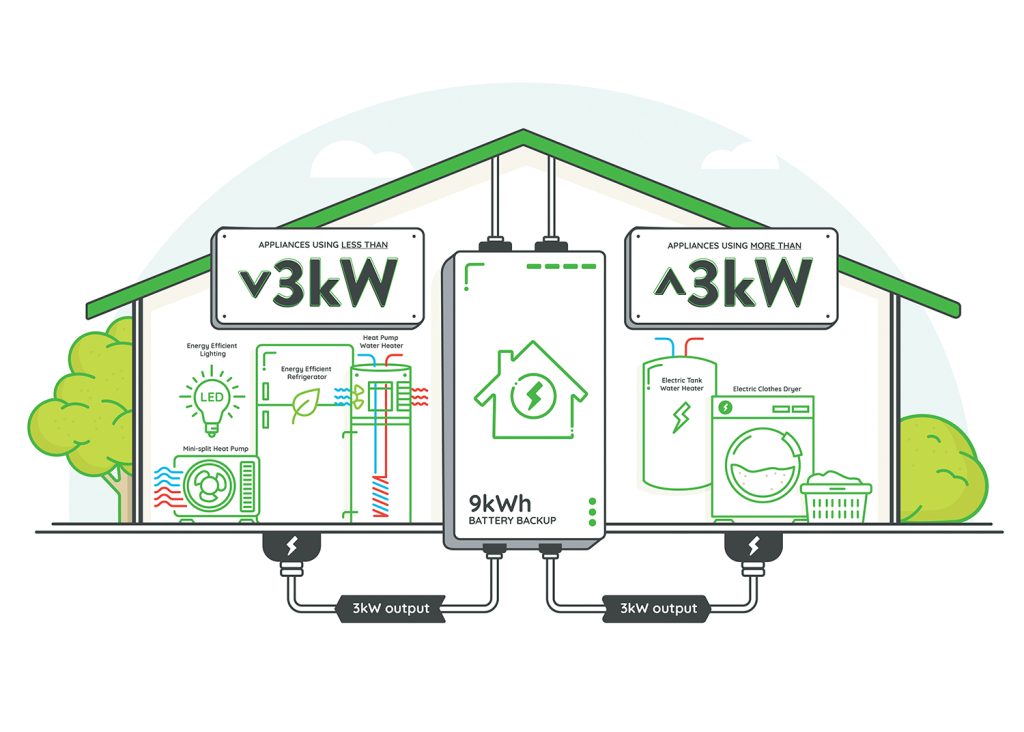
By Joe Spear
From solar power systems to electric vehicles, you may have noticed an increase in how often batteries and electric storage are discussed. Some homeowners may consider adding battery systems as a home backup power source.
Adding a home battery system is a major investment: possibly more than $10,000, and even higher if you install a large system. Before you sign a battery system purchase contract, there are a few things you should consider.
What do you want the battery to do?
This is the first question your electric co-op’s energy advisor will ask. If you are concerned that your home is losing power frequently, co-op employees can research the issue and come up with potential fixes, which may save you from spending any money.
If you plan to charge the battery at night and then use it during peak demand or sell it back to your co-op, the math may not yet add up. Time-of-use rates offered by some co-ops can help make the batteries more affordable. Yet the large upfront cost of most battery systems can lead to longer paybacks (and there is no guarantee they will break even). Understanding your needs will help your contractor find the battery system best suited for you.
Will it power what you expect it will?
It’s important to consider not only the battery system’s storage capacity, but also its discharge rate (how much power in terms of watts the battery discharges into your home). Storage capacity is not the discharge rate! You need to understand prior to purchase what your battery system will do and not be surprised after it is installed. Your co-op’s energy advisor can provide insight on the energy needed to power certain appliances and systems.
How many bids have you received?
Once you know the battery system you want, seek multiple bids from different contractors. It’s important to understand what each contractor is offering. Question each salesman’s assumptions. Does he or she know your cost of electricity? Will a contractor provide a walkthrough on set up or support after installation? A good contractor should be willing to answer questions even after service is completed.
By knowing the right questions and considerations, you can be sure that the battery system you purchase will meet your needs. Your electric co-op’s energy advisor is always available to answer questions about energy storage and your home’s energy use. Be sure to contact your co-op before you sign a contract to make sure that the dollars make sense!
JOE SPEAR is the energy advisor at Carroll White REMC in Monticello and Delphi, Indiana



